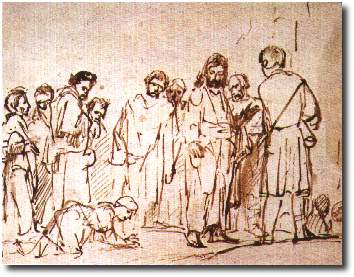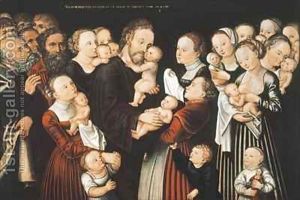Readers of UK news will know that in the last 24 hours the Labout Party has run into a predictable storm of criticism over the way it has mishandled anti- Semitic remarks made by one of its MP’s and by the chair of its National Executive. In fact, both of these offenders were suspended speedily, but its leader seemed reluctant to admit that these remarks were evidence of a crisis in the party.
The mass media, ever -ready to talk up a crisis because they need to create interest in their reporting, have not helped the public to understand the issue, as they probably do not understand it themselves.

People of so-called left wing views tend to be critical of Israel, because of its despicable treatment of Palestinians both inside of Israel and outside it. They point to the quasi -apartheid by which Palestinians in Israel are second class citizens and to their brutal expulsion from areas of the occupied territories that Israel wants to settle. Patient accumulators of evidence like Noam Chomsky have shown how in partnership with the USA, Israel has become one of the most efficient security states in the world, with a deadly secret service, a brutal state apparatus for border control, and an army ready to kill anyone who dares to oppose it.
Honest Israelis admit the facts to which people like Chomsky point, but provide the sad justification that Israel is the only state in the world which has faced continual threats to its existence since it was founded. While such citizens mourn the excesses of their own forces, they point out that their cause is constantly undermined by the refusal of Palestinian organisations to affirm its right to to exist, by frequent acts of terrorism, and by the self-serving plots of the big Islamic states, like Iran and Saudi Arabia, not to mention the growing threat from Jihadis like Daesh.
This defence is not entirely convincing but it does suggest that violence by or on behalf of Palestinians against Israel has had little success other than to provide a justification for Israeli violence against them. At the same time it is evident that the basic USA-Israeli opposition to Palestinians and their allies has fuelled and continues to fuel very dangerous conflicts whose effects are felt far beyond the Middle East. Chomsky thinks that the USA – Israel alliance is the most dangerous in the world.

Not everyone accepts the above analysis, but perhaps all can agree that nothing is helped by those on both sides of the argument who fail to distinguish Israel’s citizens from its Government, and Jewish people from both.
As always, however, the sceptical observer has to ask of the present media storm, “Cui Bono? For whom is it good?”
Clearly it is good for the Israeli Government, its agents, and its supporters.
After all, if anyone is to blame for the confusion between Israel and Jews, it is those who have repeatedly justified Israel’s brutal actions by talking about the holocaust. When it helps its propaganda, Israel is only too ready to identify itself with Jewish people in history and throughout the world; to publicise itself as a refuge for Jewish people; and to seek the support of Jewish people everywhere. (This stance is often called “Zionism ” by its opponents, but I would prefer to keep that word for a specific religious/ political movement with a specific history.)
A UK “crisis” which suggests that critics of Israel are all anti-Semites, must be relished by the Israeli Government and its supporters and may have been encouraged by them. That possibility does not excuse the stupid prejudices of the Labour MP and Senior Official who have been disciplined, but it does justify some caution when listening to those who tell us that anti-semitism is “endemic in the hard left.”
The continued life of the phrase “anti- Semitic” is also assisted by those who support the Israeli government. The term “Semite” has been abandoned by ethnographers as misleading, because it originated in 19th century German linguistic scholarship to describe a group of ancient middle eastern and North African languages, one of which is Hebrew and another ancient Arabic. The Qur’an is written in a Semitic language; indeed if Mohammed is taken literally y, God spoke in a Semitic language. Ancient Chaldeans, Syrians, Phoenicians and Ethiopians spoke Semitic languages as their descendants do today. Genetic research however does not show an identity amongst these peoples. The clumsy categories of 19th century scholarship which assisted damaging stereotypes of “races” have been exposed and ditched by modern investigators.
The racist term “Semite” was used first in Germany, and then elsewhere, to stigmatise Jewish citizens, which gives some justification to its modern use by defenders of Israel. But if it means anything, it refers to people who speak one of the Semitic group of languages, such as Arabs and some North Africans, as well as Israelis.
It isn’t hard to guess what the man killed by the Romans as ‘king of the Jews’ would make of all this. He was proud of the history and tradition of his people, but refused allegiance to jihadis who advocated holy war against the Roman invader. If once he denigrated a woman as non- Jewish, he learned from her to abandon that prejudice.He was a passionate advocate of non-violent speech and action, and suffered rather than depart from them. In today’s wars of propaganda he urges his followers to be “wise as serpents and harmless as doves.”
“If the puppets are misbehaving, always ask who’s pulling the strings.” (Hasidic Proverb)













 As Jesus did. It’s easy to forget that Jesus’ mercy was often communicated in commands, judgements or actions that brooked no contradiction. There has been something heroic in the Catholic resistance to any dilution of the teaching of Jesus on marriage, although I think their interpretation of it is wrong. If only the Pope could have mustered an equivalent heroism in standing for justice to divorced people, to pregnant women as well as to foetuses, to men and women whose sexual orientation, is not hetero, and to children everywhere. I do not mean that he should accept the views of western liberals in these matters, but rather that he could contribute something fresh, severe and liberating that would express the character of Jesus.
As Jesus did. It’s easy to forget that Jesus’ mercy was often communicated in commands, judgements or actions that brooked no contradiction. There has been something heroic in the Catholic resistance to any dilution of the teaching of Jesus on marriage, although I think their interpretation of it is wrong. If only the Pope could have mustered an equivalent heroism in standing for justice to divorced people, to pregnant women as well as to foetuses, to men and women whose sexual orientation, is not hetero, and to children everywhere. I do not mean that he should accept the views of western liberals in these matters, but rather that he could contribute something fresh, severe and liberating that would express the character of Jesus.





 It is not the job of the church to rule society, but rather to make its tradition available to citizens who are deciding their society’s future. As the referendum on Europe and the elections for the UK devolved assemblies approach, I consider that since Jesus’ teaching about wealth is more accurate than anything else we are likely to be offered, it should be made public by his churches.
It is not the job of the church to rule society, but rather to make its tradition available to citizens who are deciding their society’s future. As the referendum on Europe and the elections for the UK devolved assemblies approach, I consider that since Jesus’ teaching about wealth is more accurate than anything else we are likely to be offered, it should be made public by his churches.

